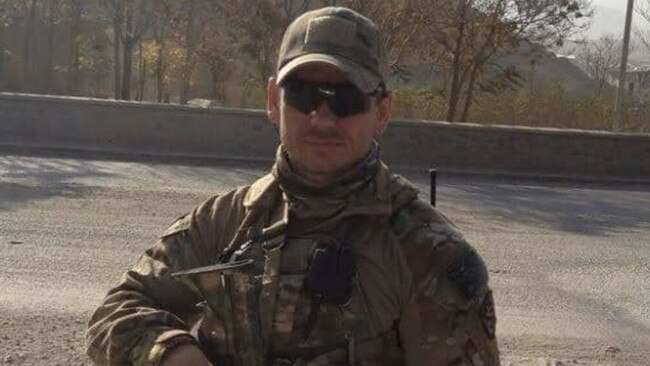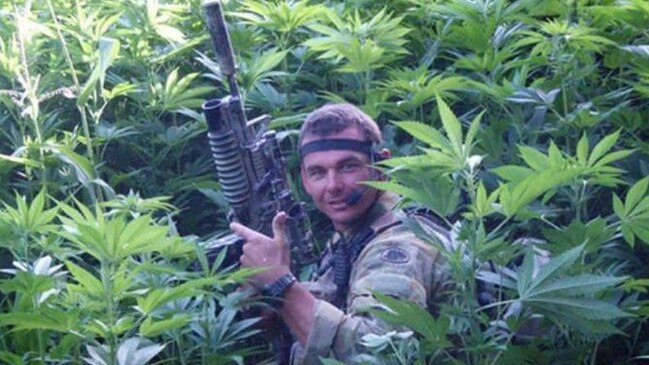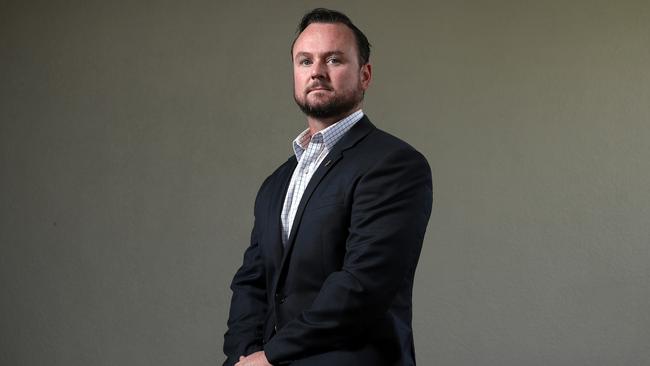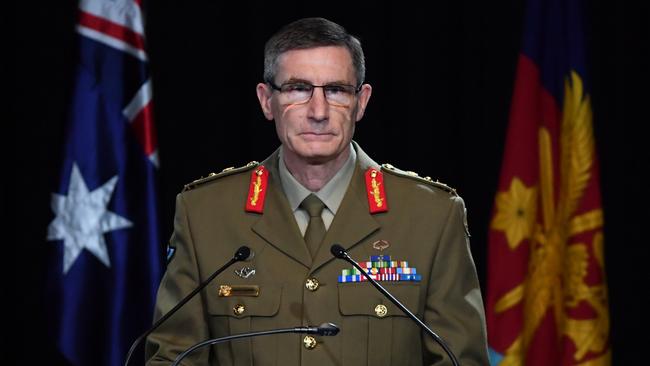Australian war crimes inquiry: Whistleblowers pay terrible price
Whistleblowers are paying a terrible price for exposing the darkest chapter in our military history, write Cydonee Mardon and Ellen Whinnett.
National
Don't miss out on the headlines from National. Followed categories will be added to My News.
On the whistleblower scale, these were extraordinary men. The Special Forces soldiers who told the truth about their hell in Afghanistan not only had to overcome their own overwhelming sense of guilt, they had generations of Anzac folklore to look past.
It’s the rule of the battlefield — you don’t run away and you don’t rat on your mates. Not about anything. Not ever.
So overwhelming were their circumstances, some have since taken their own life. Frosty was one of them. A damaged special operations soldier crushed by what he saw and did on the battlefield — and what he didn’t do.
In 2016 Sergeant Kevin Frost revealed to a former Commando Regiment Soldier, Mick Bainbridge, who like Frost had done multiple tours of Afghanistan and lawyer Glenn Kolomeitz — that he had helped cover up the alleged murder of a prisoner on one of those tours.
He told how he did not want to watch the horror; he just turned around and the guy was dead. Shot through the forehead.

Mr Bainbridge recorded the graphic details and helped Frosty “safely” present his account to the Inspector General of the Australian Defence Force, who had just begun an inquiry into alleged war crimes committed during the Afghanistan War.
In the darkest chapter in Australia’s military history, the resulting report handed down on Thursday found credible information that 25 elite soldiers, mainly from the Air Services Regiment, were involved in unlawfully killing 39 Afghani men and adolescent males.
Nineteen current and former soldiers have been referred to the Australian Federal Police for investigation over 36 matters which involve 23 alleged murders and two cases where non-combatants were treated cruelly.
Sergeant Frost, who suffered drug addiction and PTSD from what he witnessed during three tours of Afghanistan, was ready to face the consequences for his role in covering up the alleged crime and even said he deserved jail time.

He never got to experience what vindication feels like. Never got to feel the relief of having someone finally listen to what he had to say after digging to the depths of his soul to find the courage to rat. He took his own life in 2019, three years after going public.
“I’d done trips with him. He had matters on his conscience that he felt needed to be ventilated and we assisted him in doing that in a safe way, in terms of organising that engagement and having the relevant health professionals only to have his character attacked by defence,” Mr Bainbridge told The Saturday Telegraph.
“Subsequently he was suffering significant issues and subsequently he has taken his own life.”
While Frosty was battling demons, working up the courage to come forward, another soldier, Jeff Sengelman was alarmed by rumours within the ranks.
Talk that Special Forces soldiers were selling guns to bikies out of the armoury at barracks in Swanbourne, Western Australia, were the first red flags that caused him to jump on a plane. It was 2015 and Sengelman, then the Special Operations Commander Australia (SOCAUST), thought it was time to have a closer look at what some of the Special Air Services men based at the historic Campbell Barracks in Perth were up to.
He was based on the other side of the country, at the Joint Operation Command headquarters at Bungendore, outside Canberra, so he rounded up an ammunition technical ordnance team and flew across to Perth, driving to the barracks in the beachside Swanbourne.

There, he found an SAS operator loading guns into the back of a ute. It emerged some SAS operators had been using the armoury to store their personal weapons. Some of them had sold their personal weapons from there. The Saturday Telegraph could not determine if some were sold to outlaw motorcycle gang members.
Either way, the optics were terrible. A deeply unimpressed Sengelman knew he had to intervene.
Shortly afterwards, he received a letter from the mother of an SAS member, alerting him to the fact strippers were going on to base. This revelation would later make its way onto the front page of the local paper. There was a problem with the culture in the SASR but at this stage, it wasn’t known the cultural problems were manifesting themselves in alleged war crimes in Afghanistan. That came later.
Sengelman asked current and former SAS members to write to him confidentially about what they’d been up to. He received 209 responses. That led him to alert the then head of Army, Angus Campbell.
Campbell hired military sociologist Samantha Crompvoets to talk to operators and dig deeper into what was going on. Crompvoets unearthed a culture of bullying, intimidation, of hero-worship of some operators, and confronting claims of executions and other unlawful killings. The impunity some operators were enjoying in Australia had spread into the theatre of war in Afghanistan. That was enough for Campbell. In 2016, he called in the Inspector-General of the Australian Defence Force, and the Afghanistan inquiry began.

NSW Supreme Court judge Paul Brereton, a major general in the Army Reserve, spent the next four years investigating claims that members of the Special Operations Task Group breached the laws of armed conflict between 2005 and 2016.
Mr Bainbridge, who was discharged in November 2016 but had left the Second Commando Regiment by 2013, hopes the courage of these whistleblowers doesn’t fall on deaf ears.
He’s dedicated his life to giving these men and women wanting to be treated fairly when serving their country a voice and the protection they deserve.
Soldiers like Frosty who have come forward and given evidence have never needed a lawyer more than now, says Mr Bainbridge.
The same goes for any of the members who may be facing these current charges.
Because some witnesses were compelled to give evidence, the IGADF inquiry obtained evidence which is not admissible in court, meaning some cases will not be prosecuted because there is no reasonable likelihood of a prosecution succeeding. “We are really worried about people committing suicide as a result of this,” Bainbridge said.
He works with other ex-military lawyers at Operational Legal Australia giving ex-servicemen and women legal advice “knowing what it’s like to fight in a war zone” and breathe military.
Some of them now, have arguably the biggest fight ahead of them as police consider what happens next.
At the very least the whistleblowers are having their voice heard.
Australian Defence Force Chief Angus Campbell said the efforts of these soldiers, who have endured years of ostracism and vilification, are “deeply appreciated”.
The team at Operational Legal Australia are ready to help any affected member who may either be a person of interest or witness in this investigation, and implore service men and women to reach out.
MORE NEWS




